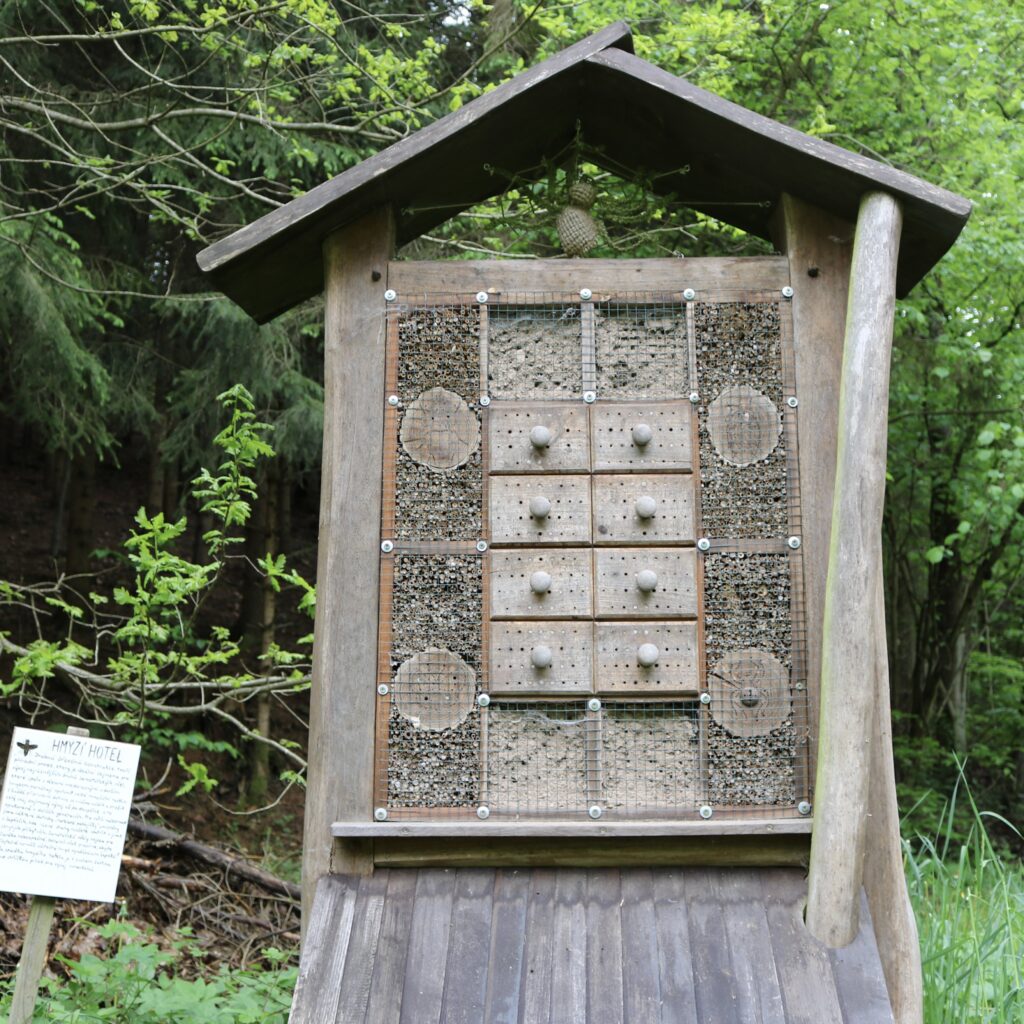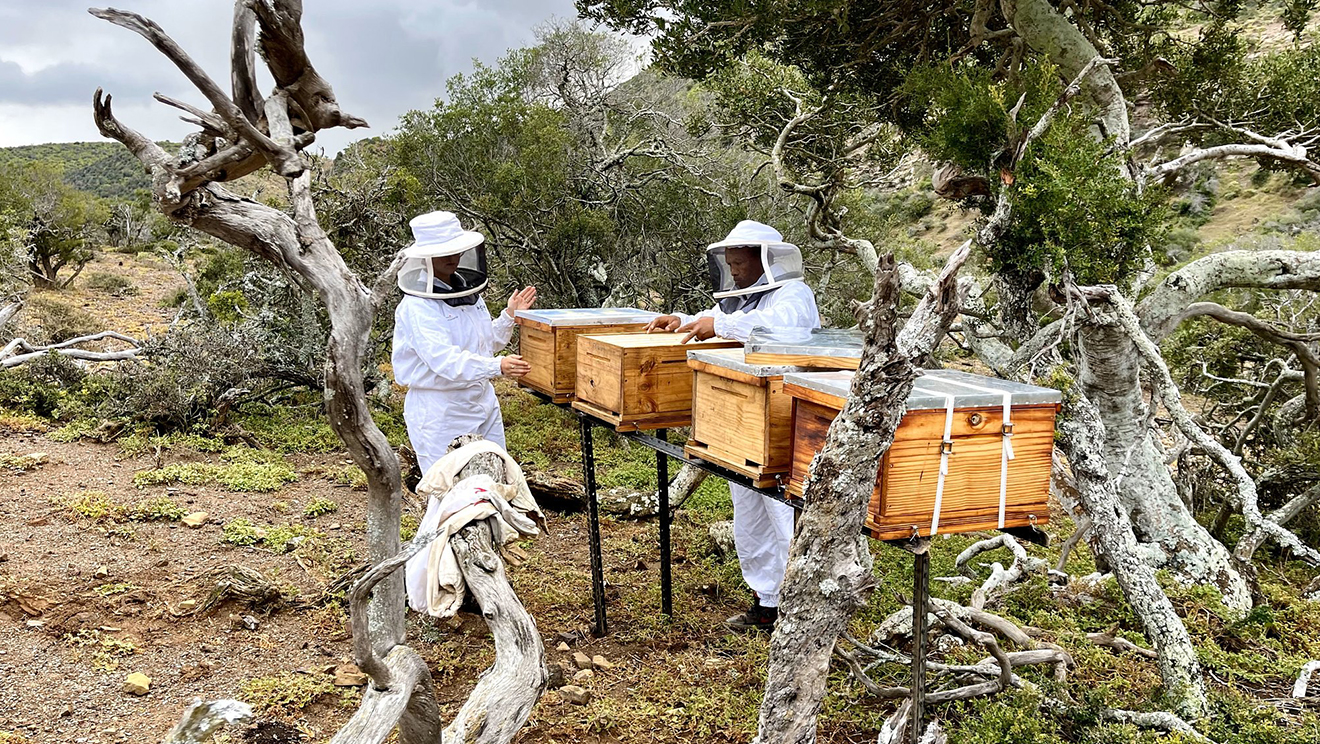It is estimated that about one-third of the food we eat relies on bee pollination. As bees visit flowers in search of nectar and pollen, they transfer pollen between plants, enabling plants to reproduce and produce fruits and seeds. This vital ecological service not only supports biodiversity but also sustains food production for humans and wildlife.
Beekeeping — the maintenance of bee colonies, commonly in man-made beehives — offers significant benefits, including promoting pollinator health and biodiversity while supporting sustainable livelihoods. A Rocha organizations around the world have undertaken beekeeping projects aimed at promoting sustainable practices, supporting communities and conserving natural habitats.
A Rocha Kenya recently implemented a sustainable beekeeping project within the Dakatcha Nature Reserve and with its neighbouring communities. The project focused on introducing beekeeping practices to local farmers while conducting environmental education on pollinators in Dakatcha schools. Students from 10 schools participated in environmental education sessions, cultivating pollinator-friendly gardens to support bee populations. Additionally, 15 farmers received training in beekeeping techniques and were provided with beehives, contributing to both conservation and economic empowerment in the region.
A Rocha South Africa commenced a beekeeping project emphasizing community livelihoods and conservation. By training and supporting community beekeepers, the project aims to create sustainable incomes while fostering environmental stewardship. This approach not only benefits bee populations and pollination but also strengthens relationships between communities and nature reserves, promoting conservation in environmentally sensitive areas.

These beekeeping projects highlight the vital role of bees in biodiversity conservation globally. It’s not just about honey; it’s about preserving ecosystems, fostering sustainable livelihoods and ensuring a sweet future for both nature and communities.



